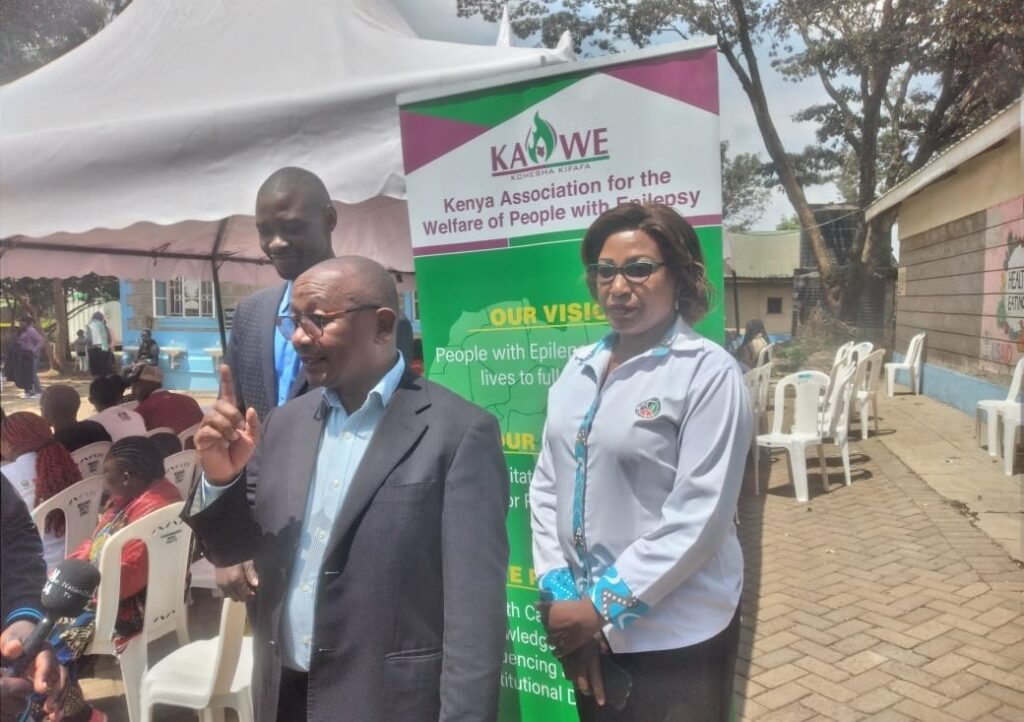
by Fred Maingi
The National Council for Persons with Disabilities (NCPWD), in partnership with the Kenya Association for the Welfare of People with Epilepsy (KAWE) and Nairobi County health officials, has launched an intensive registration and medical assessment drive targeting persons living with epilepsy and other neurological conditions. The initiative, which kicked off in Kariobangi, aims to ensure that people living with epilepsy are formally recognized as persons with disabilities and can therefore benefit from critical government support services.
Jane Wamugu, Nairobi County regional coordinator for NCPWD, emphasized that epilepsy has long been recognized as a disability under Kenyan law, but stigma and lack of awareness have prevented many from accessing the benefits they are entitled to. “The challenge we face is misinformation. Many people still don’t know that epilepsy qualifies as a disability under the Persons with Disabilities Act. That is why we are here, not just to register individuals but also to educate families and communities,” she said.
The NCPWD currently provides a range of support services to registered persons, including free medication, therapy sessions, assistive devices like wheelchairs and hearing aids, and educational scholarships. To qualify, individuals must be registered on the government’s e-Citizen platform and undergo a medical assessment. The new registration campaign is part of a broader effort to improve inclusion and access for people with disabilities, particularly those suffering from invisible or stigmatized conditions like epilepsy.
Nicholas Otieno, a clinician with KAWE, highlighted that myths and cultural misconceptions continue to pose major barriers to treatment. “Many communities still associate epilepsy with curses or demonic possession. These beliefs often result in neglect, delayed treatment, or reliance on harmful traditional practices. That’s why we’re combining medical assessments with community education—to change mindsets,” he said.
Over 160 individuals were registered and assessed during the first two days of the Kariobangi outreach, with a target of registering 300 to 400 by the end of the week. Other organizations, including Shine Epilepsy, Youth on the Move, and the Kiserem Foundation, are also supporting the effort under the umbrella of the International Bureau for Epilepsy.
Michael Mwangi, an occupational therapist from Mama Lucy Hospital, confirmed that Nairobi County health staff were actively involved in the exercise. He explained that the registration is a gateway to essential health services and a better quality of life. “When patients have consistent access to medication, they can manage epilepsy effectively and live normal, productive lives,” Mwangi said. “We’re also planning similar outreach events in Kamukunji and other Nairobi constituencies.”
The recently enacted Persons with Disabilities Act No. 4 of 2025 has expanded the benefits to include recognition and support for caregivers, with provisions for tax relief and financial empowerment programs. This is a welcome change for families providing around-the-clock care to children and adults with neurological conditions.
Organizers say the growing turnout is a sign that stigma is beginning to lift. “We’ve seen families who used to hide their relatives now stepping forward,” Wamugu noted. “This shows that awareness is working, and more people are willing to seek help.”
With continued outreach, the initiative aims to ensure that no one living with epilepsy is left behind.

More Stories
The Hub Karen Welcomes International Fashion Brand HLA
Dialogue over Drama: Lawmakers Push Truce for Sakaja and MCAs
(SCO Tianjin Summit) Xinhua Headlines: Xi proposes Global Governance Initiative at largest-ever SCO summit